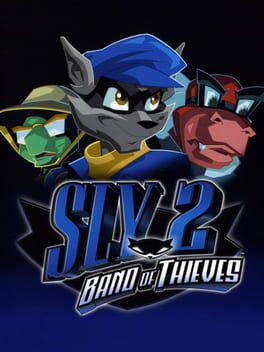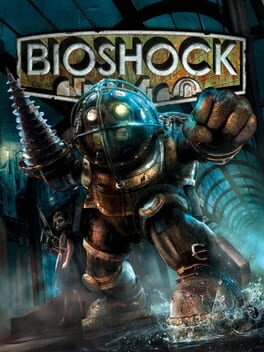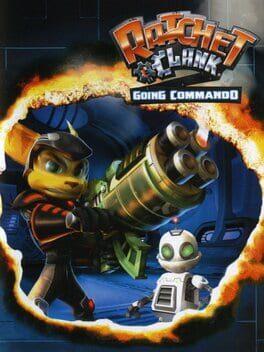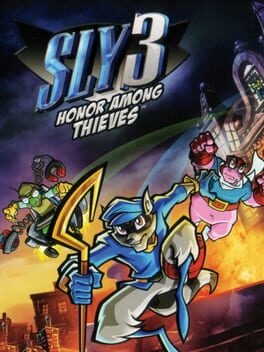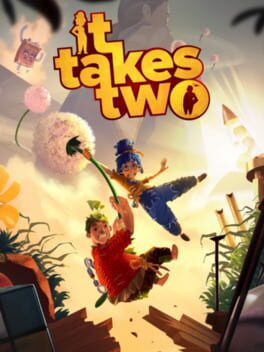jebhappy
Bio
Spends more time watching video essays on games than actually playing them these days. But damn I love games. Fuck the AAA industry.
EUREKA! reviews are reserved for extra special games which do interesting, unique, and/or innovative things with storytelling and game design in general. I aped this from Tiny Mix Tapes (RIP?).
Instagram:
@mr_jeb_happy
@music.on.mynd
Spends more time watching video essays on games than actually playing them these days. But damn I love games. Fuck the AAA industry.
EUREKA! reviews are reserved for extra special games which do interesting, unique, and/or innovative things with storytelling and game design in general. I aped this from Tiny Mix Tapes (RIP?).
Instagram:
@mr_jeb_happy
@music.on.mynd
Badges

GOTY '23
Participated in the 2023 Game of the Year Event

Well Written
Gained 10+ likes on a single review

Best Friends
Become mutual friends with at least 3 others

3 Years of Service
Being part of the Backloggd community for 3 years

Donor
Liked 50+ reviews / lists

Popular
Gained 15+ followers

Liked
Gained 10+ total review likes

On Schedule
Journaled games once a day for a week straight

Noticed
Gained 3+ followers

N00b
Played 100+ games
Favorite Games
152
Total Games Played
000
Played in 2024
000
Games Backloggd
Recently Played See More
Recently Reviewed See More
This review contains spoilers
The international arms race has reached beyond the stars. Galaxies are in constant battle for no other reason besides an almost primeval incentive to destroy and conquer. Ratchet & Clank: Going Commando is primarily a satire on the military-industry complex that began gradually subsuming all of America's foreign affairs back in the early aughts; Megacorp presents a capitalistic takeover that stretches far far far outside of Earth, and pitting the player in the shoes of the corporation's most capable and destructive lackeys sets up a meandering plot where the running gag suggests oblivious culpability.
There's a real Ah-a! moment as soon as the assumed villain mentions the player's capitalist devotion, offering a mode of tragic irony unique to games, to keep us invested without doubting our intellect. From there on, the klutz of a CEO, Fizwidget consistently kookily edges Ratchet and Clank down an endless path through barren landscapes once lush with Life, and the ruins of Megacorp's fallen predecessor, Gadgetron. The cutscenes infer the comic, while traversal offers something subtly harrowing to consider.
Truly, Going Commando houses one of the most fully-realised, thoughtfully-constructed game universes on the PS2. Each planet the titular duo travel to is itself is a dazzling display of deliberate level design and worldbuilding. The weapons and gadgets are a joy to unlock, learn, and level up (it was the premier era of minigame inventiveness), and bolts once again prove a deviously cunning take on currency and XP systems. Going Commando is RPG-lite, and by the final epic boss fight it's clear how intuitive the player-character's development is in tune with the player's own sense of accomplished play.
The world of Ratchet and Clank is dominated by industry and metal; bolts lay the foundation of this boundless capitalist kingdom. By reveling in the carnage of the gameplay and the money-hungry delight of retrieving bolts, the player relinquishes to the chaos of this galactic wild west, a planetscape trapped in stasis by the explosive effect of its own ebullient incentive. Ratchet may have matured since the first game, as a man and a soldier, but his mindless destructive tendencies still indicate an id unleashed (typified whenever he dons a devious smile after pulling out a massive gun).
It's a shame then that the climactic plot twist all but contradicts the underlying sly satire of it all, positing the greed-driven CEO as a cartoon villain in disguise, seemingly just to rope Qwark back in for the sequel. The real Fizwidget is freed during the final cutscene, and from there, everything seems to go back to normal after the credits roll, or so we can infer.
Going Commando's driving plot, involving a race of uncontrollable monster pets, funnily encapsulates consumerist America's obsession with rapidly-evolving technology at whatever cost; the final reveal disregards the entire point. Regardless, this sequel stands as a mightily fulfilled exercise in brainy brawlers; a suitable exemplar of sixth generation developers' devotion to craft and concept. The revelry is the mode is the message.
There's a real Ah-a! moment as soon as the assumed villain mentions the player's capitalist devotion, offering a mode of tragic irony unique to games, to keep us invested without doubting our intellect. From there on, the klutz of a CEO, Fizwidget consistently kookily edges Ratchet and Clank down an endless path through barren landscapes once lush with Life, and the ruins of Megacorp's fallen predecessor, Gadgetron. The cutscenes infer the comic, while traversal offers something subtly harrowing to consider.
Truly, Going Commando houses one of the most fully-realised, thoughtfully-constructed game universes on the PS2. Each planet the titular duo travel to is itself is a dazzling display of deliberate level design and worldbuilding. The weapons and gadgets are a joy to unlock, learn, and level up (it was the premier era of minigame inventiveness), and bolts once again prove a deviously cunning take on currency and XP systems. Going Commando is RPG-lite, and by the final epic boss fight it's clear how intuitive the player-character's development is in tune with the player's own sense of accomplished play.
The world of Ratchet and Clank is dominated by industry and metal; bolts lay the foundation of this boundless capitalist kingdom. By reveling in the carnage of the gameplay and the money-hungry delight of retrieving bolts, the player relinquishes to the chaos of this galactic wild west, a planetscape trapped in stasis by the explosive effect of its own ebullient incentive. Ratchet may have matured since the first game, as a man and a soldier, but his mindless destructive tendencies still indicate an id unleashed (typified whenever he dons a devious smile after pulling out a massive gun).
It's a shame then that the climactic plot twist all but contradicts the underlying sly satire of it all, positing the greed-driven CEO as a cartoon villain in disguise, seemingly just to rope Qwark back in for the sequel. The real Fizwidget is freed during the final cutscene, and from there, everything seems to go back to normal after the credits roll, or so we can infer.
Going Commando's driving plot, involving a race of uncontrollable monster pets, funnily encapsulates consumerist America's obsession with rapidly-evolving technology at whatever cost; the final reveal disregards the entire point. Regardless, this sequel stands as a mightily fulfilled exercise in brainy brawlers; a suitable exemplar of sixth generation developers' devotion to craft and concept. The revelry is the mode is the message.
This review contains spoilers
EUREKA!
Sly, Bentley, and Murray present three parts to a whole -- the ego, the superego, and the id; but more emotionally speaking, they forge a brotherhood based in honor and commitment. Sly's pursuit of the riches of his past, his legacy wrought in gold, pertains to his personal quest for identity.
The three are a close-knit family, which has been established ever since the first game introduced them as orphanage pals-- abandoned children from far different backgrounds who find stability in each other's company and their shared exploits. Thievery compels their wits and passion for action (and our own), and offers the protagonist an ethnic identification for him to latch onto. Sly 3 rises above typical sequel obligation by offering solace and development through redemptive episodes.
Familiar series baddies like Dimitri and Panda King are recruited to the Cooper Gang, and even the exhibitionist Baron turns out to be brainy Penelope hiding behind a dastardly facade. Panda King's episode especially considers the very significant act of self-actuated renewal, particularly during one scene where he has an internal monologue with his reflection, in a rousing display of autonomous emotional consolidation. It is wildly ambitious writing for a game aimed for younger audiences, with a wonderful lesson on the importance of enacting personal growth. Growth is a choice governed by one's emotive maturation.
Carmelita as well eventually comes around to acknowledging Sly's inherent goodness, despite his criminal activities, because ultimately his team's ventures prove a morally sound expedition into ancestral discovery. Love lights the way forward towards cooperation and unity-- Sly 3 presents a refutation of division in a world full of strife.
These thieves take down the egotists who give thieving and sleuthing a bad name. They are ethically-disinclined protectors of the world they inhabit, whether relieving the poisoned waters of Venice, clearing out a company of miners from the Australian outback, or thwarting a malicious Chinese emperor's forced marriage plot. Don Octavio, General Tsao, Dr. M, these nefarious villains each represent a cruel, imperious narcissism, which Sly and the gang offer a karmic retort to; and the gameplay (which revolves around carrying out cunning schemes with grand, fulfilling realisation) fittingly corresponds.
Dr. M deems himself the mirror image to Sly's selfless crusade, going so far as to implicate Bentley by comparing them to each other. But Bentley perceives his friend's loving companionship and exposes the antagonist's insecurity. There is a real beauty to the game's progression as new playable characters are introduced, meaning new abilities are unlocked for new interactive playstyles, conditioning this developing team as a singular unit, glued together by the player's input.
One could talk for hours about the game's endless variety of settings and playstyles. The fifth chapter, Dead Men Tell No Tales certainly comes across as ahead-of-its-time (would Assassin's Creed: Black Flag exist without this game??). Though, for as -- surprisingly -- intelligently the script considers its characters, it's a shame Penelope only ever serves as a token female character in a plot dominated by male-centric invention. She's either a brainless love interest or a damsel in distress for most of the cutscenes, unfortunately.
Regardless, Sucker Punch have once again succeeded in melding the weighty action adventure of Saturday morning cartoons with a visual style that suggests a vibrant comic book in motion. For as playful the design is, the writing beautifully grounds this story of anthropomorphic animals seeking out their most ideal selves. Sly 3 commends honor in the face of authoritative greed, making it one of the most sophisticated and inspiring children's games ever conceived.
Sly, Bentley, and Murray present three parts to a whole -- the ego, the superego, and the id; but more emotionally speaking, they forge a brotherhood based in honor and commitment. Sly's pursuit of the riches of his past, his legacy wrought in gold, pertains to his personal quest for identity.
The three are a close-knit family, which has been established ever since the first game introduced them as orphanage pals-- abandoned children from far different backgrounds who find stability in each other's company and their shared exploits. Thievery compels their wits and passion for action (and our own), and offers the protagonist an ethnic identification for him to latch onto. Sly 3 rises above typical sequel obligation by offering solace and development through redemptive episodes.
Familiar series baddies like Dimitri and Panda King are recruited to the Cooper Gang, and even the exhibitionist Baron turns out to be brainy Penelope hiding behind a dastardly facade. Panda King's episode especially considers the very significant act of self-actuated renewal, particularly during one scene where he has an internal monologue with his reflection, in a rousing display of autonomous emotional consolidation. It is wildly ambitious writing for a game aimed for younger audiences, with a wonderful lesson on the importance of enacting personal growth. Growth is a choice governed by one's emotive maturation.
Carmelita as well eventually comes around to acknowledging Sly's inherent goodness, despite his criminal activities, because ultimately his team's ventures prove a morally sound expedition into ancestral discovery. Love lights the way forward towards cooperation and unity-- Sly 3 presents a refutation of division in a world full of strife.
These thieves take down the egotists who give thieving and sleuthing a bad name. They are ethically-disinclined protectors of the world they inhabit, whether relieving the poisoned waters of Venice, clearing out a company of miners from the Australian outback, or thwarting a malicious Chinese emperor's forced marriage plot. Don Octavio, General Tsao, Dr. M, these nefarious villains each represent a cruel, imperious narcissism, which Sly and the gang offer a karmic retort to; and the gameplay (which revolves around carrying out cunning schemes with grand, fulfilling realisation) fittingly corresponds.
Dr. M deems himself the mirror image to Sly's selfless crusade, going so far as to implicate Bentley by comparing them to each other. But Bentley perceives his friend's loving companionship and exposes the antagonist's insecurity. There is a real beauty to the game's progression as new playable characters are introduced, meaning new abilities are unlocked for new interactive playstyles, conditioning this developing team as a singular unit, glued together by the player's input.
One could talk for hours about the game's endless variety of settings and playstyles. The fifth chapter, Dead Men Tell No Tales certainly comes across as ahead-of-its-time (would Assassin's Creed: Black Flag exist without this game??). Though, for as -- surprisingly -- intelligently the script considers its characters, it's a shame Penelope only ever serves as a token female character in a plot dominated by male-centric invention. She's either a brainless love interest or a damsel in distress for most of the cutscenes, unfortunately.
Regardless, Sucker Punch have once again succeeded in melding the weighty action adventure of Saturday morning cartoons with a visual style that suggests a vibrant comic book in motion. For as playful the design is, the writing beautifully grounds this story of anthropomorphic animals seeking out their most ideal selves. Sly 3 commends honor in the face of authoritative greed, making it one of the most sophisticated and inspiring children's games ever conceived.
"No other developer from the past decade has been so studiously compelled by the storytelling potential of cooperative play, and It Takes Two is now their crowning achievement. Endlessly creative, the game dispels traditional gameplay loops to revel in the immediacy of collaborative puzzle-solving, and most importantly the symbolic effects governing their narrative significance. The result is a co-op game about co-op games, a deeply reflective work inspired by numerous genres from platformers to 3D shooters to hack-and-slash RPGs and even fighting games."
You can read my full review here:
https://pig.gg/it-takes-two-is-an-endlessly-creative-ode-to-romantic-cooperation/
You can read my full review here:
https://pig.gg/it-takes-two-is-an-endlessly-creative-ode-to-romantic-cooperation/
